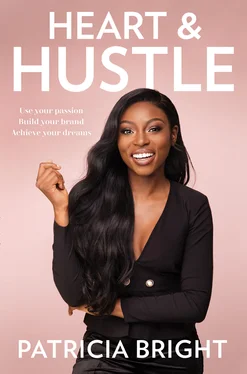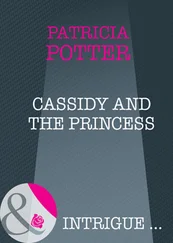The way I see it, life goes in seasons. I figured that if I stuck with the fashion course, it wasn’t going to set me up in the way that I wanted. So I switched, believing that afterwards I’d be able to get a better job, earn more money, and that would provide me with more freedom and opportunities. I wasn’t necessarily going to be an accountant all my life – and, I was right, that’s not what happened – but I wanted to give myself options. I didn’t necessarily love my new course, but I realised my mind really connected with the subject matter. I liked the spreadsheets and crunching numbers – I’m analytical. Changing my path was right for me.
I learned an important lesson through that. When you’re starting off, it’s important to find that sweet spot between your passion, your ability and what’s practical. You don’t have to start off in your dream job or career – most of us have got to pay the bills somehow, right? In the US, young workers now switch jobs on average four times in their first ten years after graduation. 1My approach is to think big, and take small steps.
LIFE LESSON: When it comes to life, it’s never a straight line – it’s more like a zigzag! Think of every experience, good and bad, as a stepping stone to the next opportunity.
But Patricia, what should Ido?
The short and honest answer is: I don’t know, the answer is different for everybody! But I will tell you something: where you start off doesn’t matter as much as you think. For example, the thing about studying is that it’s not just about the subject you choose. The skills that you pick up and the people you meet along the way can be even more valuable. Some degrees, like medicine and dentistry, are vocational, of course, but otherwise much of the experience is about learning the skills to equip you for life in general, rather than for a particular job. Things like understanding how to think critically, analyse, research independently, and even just how to be someone who can show up, sit down and meet deadlines on time. Of course, not everybody wants to carry on studying after school, and often for those people university can be an expensive waste of three years! The days where having any degree was considered highly prestigious and a guaranteed ticket to a life of comfort and good income are long gone.
The problem is, when you’re younger, you don’t really know what career options are out there. It all seems very rigid – lawyer, accountant, doctor, nurse – but there are so many more options that you have no idea about, and what’s available changes as the world changes. You can even write your own job role aligned to your strengths, bring it to a company and say, ‘I will do this for you’, and they might agree – and pay you a salary to do that!
No wrong jobs
In the same way, we have a tendency to get really connected to our first job, thinking it’s a lot more important than it actually is; we believe that we’ll be ‘stuck there for life’ and it’s nothing like the area we want to work in. Sometimes you’ll hear people say, ‘There’s certain things I wouldn’t do,’ or ‘I can’t do that, I’ve got a degree!’ But pretty much any job is better than sitting around holding out for the perfect starter role.
As I’ve tried to show you by explaining my own first jobs and hustles, I’ve come to learn that all experience is valuable and can be a springboard to greater things in the future. Working in a kitchen, for example, will teach you time management, teamwork and how to cope under pressure. Data entry will teach you how to stay focused and, at a basic level, to turn up and get the work done even when it bores you! You just have to remember that if you’re doing something you don’t like, you don’t have to do it for ever – but you may have to do it for now. I’ve had people work for me who studied at Oxford University alongside those who have left school at eighteen and worked jobs some would consider ‘menial’. But what I’ve learned is that ultimately it doesn’t matter whether someone’s got a degree or not. It’s all about whether someone can apply themselves to a task, even if it isn’t the most glamorous thing to do, and deliver results. Success lies in the ability to learn and consistently execute.
LIFE LESSON: Sometimes you have to do the lower-paying job or the role you’re not so keen on, to build up the experience that will put you where you want to be.
So by all means have a plan – but keep your options open. You don’t want to close yourself off to opportunity. You never know where your next break might come from. In my own case, after university, I ended up in the City, in the high-flying world of big investment banks. It wasn’t an industry I knew or where I had family that could get me an ‘in’, and I really didn’t have a clue how it all worked. So how did I do it? Let me explain …
Use your network
I’ve always had that overriding sense that I’ll be fine, a mentality I picked up from my mum. I felt somehow I’d be successful, but how – or even what my definition of success was – I really didn’t know. But, as I neared the end of my university course, I did have a wonderful friend from college, Emeka, who was doing a computer science degree at Manchester University. He was a bright guy, going places, and I would confide in him because he inspired me and his door was always open. I would ask him a ton of questions about everything – love, life, careers. Nearing the end of our courses, I happened to ask him what he was doing after uni and whether he’d heard about any opportunities. I was worried. I had no idea what I was going to do next. He shared with me that his friend had just got offered work at an investment bank called Merrill Lynch and was getting paid £30,000 for his first job. Emeka himself was about to do a summer internship there. I was shocked: that seemed a lot of money and a great opportunity. I wanted in. Emeka encouraged me to apply for an internship. He gave me the recruiter’s email, I got in touch with her and she told me there was a Women in Technology dinner taking place, aimed at female students interested in going into the City. Women who had senior roles in technology at Merrill Lynch – directors and heads of departments – would be attending. I wasn’t a tech girl and I knew nothing about the City, so I got my friend to give me the lowdown. In fact, I prepared for this ‘networking dinner’ like it was an exam (although it was super-casual). When the evening arrived, I was ready with my note pad, pen and article clippings to stand out.
The night of the dinner, I quickly noticed the other students were chit-chatting among themselves and not talking to the women who had come from the business. I’m not sure if nerves or hunger were to blame, but I decided to take it upon myself to work the room, dropping in references to all the research I’d done. When it came to the sit-down part of the evening, I was that annoying person with my hand up to ask questions related to the industry: ‘What’s it like being a woman in the business?’, ‘Where do you see the financial markets going?’ The women from the bank seemed slightly taken aback, to be honest – Why is she asking these questions? – but they were intrigued. And I wanted to stand out: I was hustling. That didn’t mean I wasn’t perfectly nice to everyone there. You can be nice – and totally shameless! But I was focused on what I wanted from that encounter, whereas the others were a bit more laid back about connecting with the executives from the bank. I’d gone prepared, and the executives remembered me.
Preparation is key in a situation where you want to impress. You don’t have to think of clever questions off the cuff. If you’re shy or unsure, put together a mental ‘cheat sheet’ for the conversation ahead. In my case, I’d spoken to my friend Emeka, picking his brains about what I could ask, and I knew what subjects I hoped to talk about.
Читать дальше












![John Bruce - The Lettsomian Lectures on Diseases and Disorders of the Heart and Arteries in Middle and Advanced Life [1900-1901]](/books/749387/john-bruce-the-lettsomian-lectures-on-diseases-and-disorders-of-the-heart-and-arteries-in-middle-and-advanced-life-1900-1901-thumb.webp)